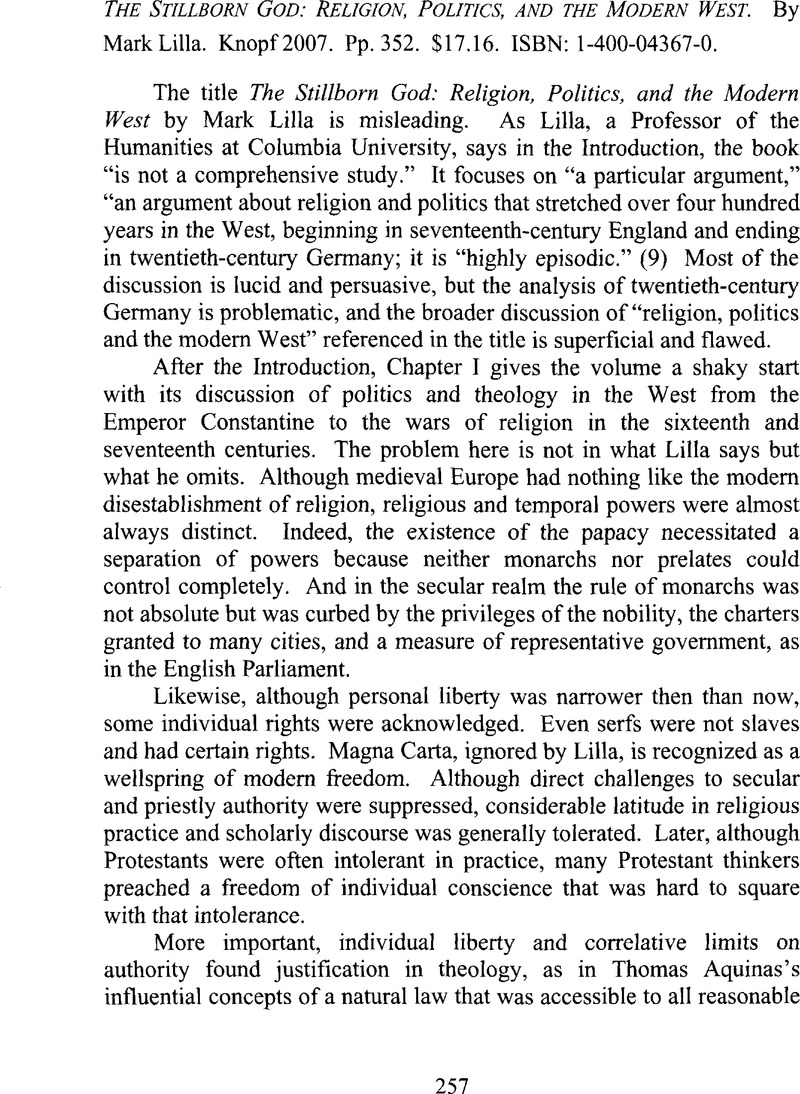No CrossRef data available.
Published online by Cambridge University Press: 24 April 2015

1. See generally Grant, Edward, God and Reason in the Middle Ages (Cambridge U. Press 2001)CrossRefGoogle Scholar.
2. See Hume, David, A Treatise Upon Human Nature bk. 3, pt 1 (1739)Google Scholar.
3. Hume, David, A Treatise on Human Nature, quoted in The Cambridge Dictionary of Philosophy 342 (Audi, Robert ed., Cambridge U. Press 1995)Google Scholar.
4. Declaration of Independence, ¶ 2.
5. See e.g. R.H. Tawney's Commonplace Book 67 (Winter, J.M. ed., Joslin, D.M. trans., Cambridge U. Press 1972)Google Scholar; Perry, Michael, Morality and Normativity (2007), available at http://ssm.com/abstract=1009604Google Scholar; Tinder, Glenn, Can We Be Good Without God: The Political Meaning of Christianity, Atlantic 69, 80 (11 1989)Google Scholar; White, James Boyd, Talking About Religion in the Language of Law: Impossible But Necessary, 81 Marquette L. Rev. 177, 197–199 (1998)Google Scholar.
6. See Payne, Stanley G., A History of Fascism 1915-1945, at 200–201 (U. Wis. Press 1995)Google Scholar.
7. Nietzsche, Friedrich Wilhelm, quoted in The Cambridge Dictionary of Philosophy 534 (Audi, Robert ed., Cambridge U. Press 1995)Google Scholar.
8. Dostoyevsky, Fyodor, The Brothers Karamazov 235 (Signet 1957)Google Scholar.
9. See Carter, Stephen L., The Culture of Disbelief: How American Law and Politics Trivialize Religious Devotion 227–229 (Basic Books 1993)Google Scholar (describing the importance of religion in the civil rights movement).